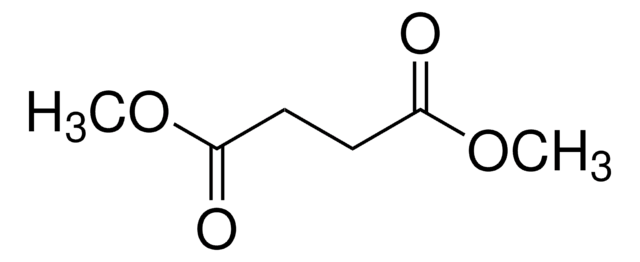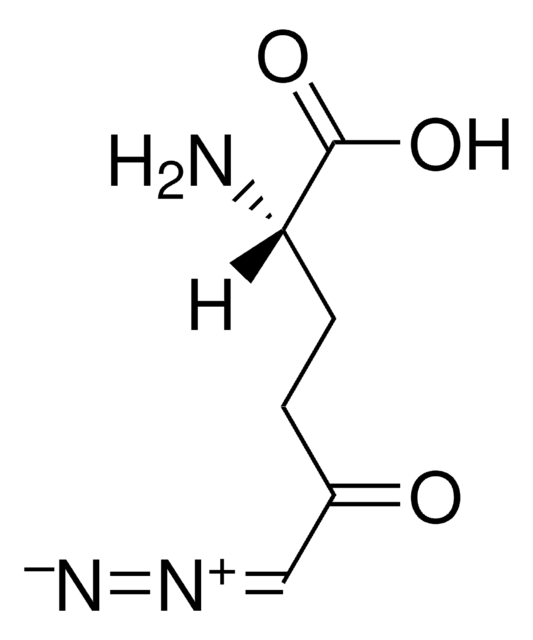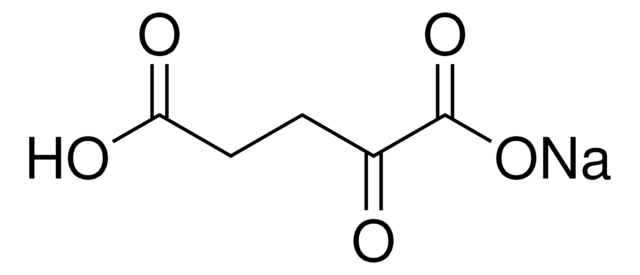349631
Dimethyl 2-oxoglutarate
96%
Synonym(s):
Dimethyl α-ketoglutarate
About This Item
Recommended Products
Quality Level
assay
96%
form
liquid
refractive index
n20/D 1.439 (lit.)
bp
90-95 °C/0.4 mmHg (lit.)
density
1.203 g/mL at 25 °C (lit.)
SMILES string
COC(=O)CCC(=O)C(=O)OC
InChI
1S/C7H10O5/c1-11-6(9)4-3-5(8)7(10)12-2/h3-4H2,1-2H3
InChI key
TXIXSLPEABAEHP-UHFFFAOYSA-N
Related Categories
General description
Application
Storage Class
10 - Combustible liquids
wgk_germany
WGK 3
flash_point_f
Not applicable
flash_point_c
Not applicable
ppe
Eyeshields, Gloves
Choose from one of the most recent versions:
Already Own This Product?
Find documentation for the products that you have recently purchased in the Document Library.
Customers Also Viewed
Articles
Sigma-Aldrich presents an article about how proliferatively active cells require both a source of carbon and of nitrogen for the synthesis of macromolecules. Although a large proportion of tumor cells utilize aerobic glycolysis and shunt metabolites away from mitochondrial oxidative phosphorylation, many tumor cells exhibit increased mitochondrial activity.
Our team of scientists has experience in all areas of research including Life Science, Material Science, Chemical Synthesis, Chromatography, Analytical and many others.
Contact Technical Service

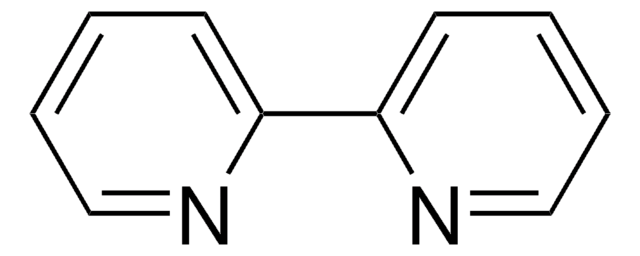

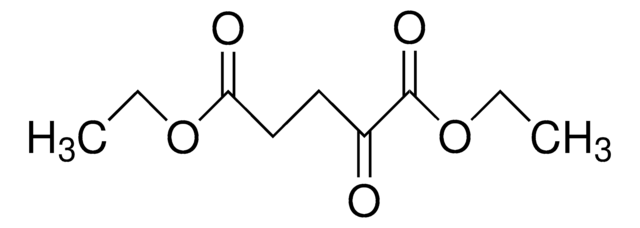
![1,4-Diazabicyclo[2.2.2]octane ReagentPlus®, ≥99%](/deepweb/assets/sigmaaldrich/product/structures/366/129/a6ff4175-974d-4fac-9038-b35e508ef252/640/a6ff4175-974d-4fac-9038-b35e508ef252.png)
